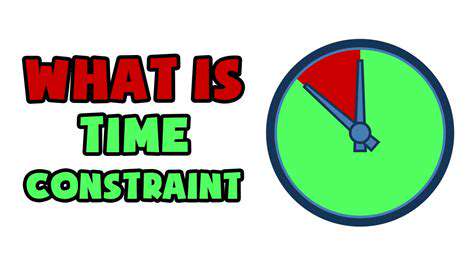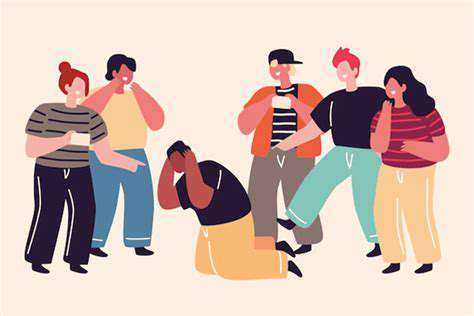Challenges of Maintaining a Sustainable Lifestyle in a Modern World
1. Access to Sustainable Options
Barriers to Availability
One of the primary challenges of adopting a sustainable lifestyle is the limited availability of sustainable products and services. In many areas, especially rural or low-income neighborhoods, consumers may find it difficult to access organic foods, eco-friendly household items, or sustainable transportation options. This scarcity can result in individuals having to choose less sustainable alternatives out of sheer necessity.
Additionally, even in urban settings where sustainable options may be more plentiful, they can also be significantly more expensive than their conventional counterparts. This price disparity can further limit access, making it difficult for families on a tight budget to make environmentally conscious choices.
The Influence of Marketing and Consumer Culture
Modern consumer culture often prioritizes convenience and low cost over sustainability, which can create a significant barrier to making eco-friendly choices. Aggressive marketing tactics by large corporations often promote single-use products and fast fashion, overshadowing the benefits of sustainable alternatives. This bombardment of advertisements can easily sway consumers, making it challenging to resist the allure of convenience.
Moreover, social pressures and trends can lead to the normalization of unsustainable habits. With many individuals feeling the need to keep up with the latest fashions or technological gadgets, the pursuit of sustainability can take a backseat, further entrenching unsustainable lifestyles in everyday life.
2. Time Constraints

Understanding the Impact of a Busy Lifestyle
In today's fast-paced world, many individuals find themselves juggling multiple responsibilities, from work commitments to family obligations. This constant busyness often leaves little room for sustainable practices, such as cooking from scratch or participating in community programs. As a result, convenience often takes precedence, leading to choices that may not align with sustainable living.
Moreover, the pressure to keep up with societal expectations contributes to the challenge of maintaining a sustainable lifestyle. People may feel compelled to purchase new items rather than repair or repurpose existing ones, further contributing to environmental degradation.
Understanding the implications of a busy lifestyle is crucial. By recognizing how time constraints hinder sustainable choices, individuals can take proactive steps to prioritize eco-friendly practices in their everyday lives.
Strategies for Managing Time Effectively
Finding ways to incorporate sustainability into a busy schedule is essential for maintaining a sustainable lifestyle. Setting aside dedicated time each week for meal planning and preparation can drive significant positive changes. By planning meals, individuals can reduce food waste and opt for more environmentally friendly ingredients.
Additionally, prioritizing tasks and learning to say no can help create space for sustainable practices. Allocating time for community clean-up events or local sustainability workshops can enrich a busy lifestyle while fostering connections with like-minded individuals.
Lastly, leveraging technology can make a significant difference. There are numerous apps available that can assist with grocery lists, meal planning, and reminders about sustainable practices, enabling individuals to stay organized and committed to their goals.
3. Social Pressures and Expectations

Understanding Social Influences
Social pressures play a significant role in shaping our lifestyle choices. People often feel compelled to conform to societal norms that may not align with sustainable practices.
For instance, the expectation to participate in consumerism can lead to the overconsumption of resources. In a society that values material success, individuals might prioritize acquiring new products over sustainability.
Moreover, social media amplifies these pressures, showcasing lifestyles that may be appealing but not necessarily sustainable. This constant comparison can lead individuals to neglect their values in favor of fitting in.
To counteract these influences, it’s essential to cultivate a supportive community that prioritizes sustainability. Engaging with others who share similar values can reinforce commitment to a more sustainable lifestyle.
Balancing Personal and Societal Expectations
Many individuals struggle to balance their personal values with the expectations of society. At times, this leads to contradictions in behavior, where people wish to adopt sustainable practices but feel held back by external pressures.
For example, attending social gatherings that are centered around single-use plastics or excessive waste can create discomfort for those who wish to live sustainably. These situations often result in individuals opting to go along with the crowd rather than advocating for sustainable alternatives.
Moreover, commitments to work or social groups can lead to compromises that counteract personal sustainability goals. Understanding how to navigate these challenges is crucial for maintaining long-term sustainable habits.
Educating friends and family about the importance of sustainability can help in persuading them to make more conscious choices together. Collective efforts can make it easier to resist societal pressures while promoting a sustainable lifestyle.
Overcoming Guilt and Shame
Many people experience feelings of guilt or shame when they believe they are not living sustainably. This emotional turmoil can stem from both personal standards and societal judgment.
Advertising and media often portray ideal lifestyles that can make individuals feel inadequate when they fall short. As a result, many may question their commitment to sustainability based on isolated choices.
However, it is essential to recognize that no one is perfect and every small change can contribute to a larger impact. That being said, embracing incremental improvements can alleviate some of the pressure individuals feel.
Additionally, self-compassion plays a crucial role in overcoming these feelings. Acknowledging that everyone is on their own journey can encourage a more forgiving perspective towards one’s sustainability efforts.
4. The Cycle of Consumption
The 24/7 Consumer Culture
In today's society, consumers are bombarded with constant advertisements and promotions. This relentless exposure can create a sense of urgency, pushing individuals to make unnecessary purchases. The culture of instant gratification often overrides the commitment to sustainability, as people prioritize immediate satisfaction over long-term environmental health.
This 24/7 consumer culture not only impacts personal spending habits but also fuels a cycle of overproduction and waste. Brands often churn out new products at a rapid pace, leading to increased resource consumption and environmental degradation. Breaking free from this cycle is crucial for those striving for a sustainable lifestyle.
Accessibility of Sustainable Choices
While the demand for sustainable products has grown, accessibility remains a significant barrier. Many eco-friendly options are priced higher than conventional products, making them less attainable for lower-income individuals and families. This economic disparity means that a truly sustainable lifestyle is often perceived as a privilege rather than a universal right.
Moreover, the availability of sustainable products can be limited in certain regions, particularly in rural areas. The lack of access to local markets that prioritize sustainability can deter individuals from making eco-friendly choices. Encouraging policy changes to support accessibility for all would be a step towards more inclusive sustainability.
Emergency Mindset
In times of crisis, whether economic or environmental, individuals often revert to an 'emergency mindset.' This instinctual reaction prioritizes short-term solutions over long-term sustainability. For example, during economic downturns, people may stockpile resources or opt for cheaper, less sustainable products to save money.
This reactive approach can lead to increased waste and further entrench unsustainable habits. Addressing the psychological and sociopolitical factors that contribute to this mentality is essential for fostering a culture of sustainability that prioritizes long-term well-being over immediate needs.
Education and Awareness
Educational initiatives play a crucial role in promoting sustainable lifestyles. However, many individuals may lack access to comprehensive education on sustainability practices, which hampers their ability to make informed choices. Misconceptions about what constitutes a sustainable lifestyle can also lead to ineffective practices.
Raising awareness about the impact of consumer choices on the planet is vital. This can be achieved through community programs, online resources, and engaging discussions that empower individuals to understand their role in sustainability and promote behavior change.
Social Norms and Peer Pressure
Social norms significantly influence behavior, and the desire to fit in can lead individuals to prioritize trends over sustainable practices. Peer pressure can discourage people from making environmentally conscious choices if such behaviors are not widely accepted or practiced by their social circle.
5. The Importance of Education and Awareness
Understanding the Environmental Impact
Awareness of our individual and collective impact on the environment is crucial to promoting sustainable living. Many people are unaware of how daily activities, such as driving a car or using plastic products, contribute to environmental degradation. Education plays a key role in transforming this understanding into actionable changes that can benefit the planet.
By educating ourselves and others about the consequences of consumption patterns, we can encourage more sustainable choices. For instance, choosing public transportation over individual car use can significantly reduce carbon footprints, while understanding the importance of recycling can help decrease waste in landfills.
Integrating Sustainability into Daily Life
Embracing sustainability requires integrating eco-friendly practices into our everyday routines. This could mean adopting a plant-based diet, reducing water usage, or making conscious decisions to purchase sustainable products. Education can offer practical solutions and tips, making it easier for individuals to implement changes in their lifestyles.
The challenge often lies in breaking old habits and making sustainable choices a priority. Initiatives such as community workshops and online courses can aid individuals in adopting these practices, thus fostering a culture of sustainability within families and communities.
Overcoming Misconceptions and Barriers
Many misconceptions surrounding sustainability can hinder individuals from making eco-friendly choices. For example, some people may believe that sustainable products are too expensive or that making eco-conscious choices requires significant lifestyle changes. Education can dispel these myths by providing information on affordable and accessible sustainable alternatives.
Addressing these misconceptions is vital in promoting a more sustainable future. By showcasing success stories and effective strategies, educational programs can inspire more people to participate in sustainable living. Overcoming these barriers can lead to a broader acceptance and practice of environmentally friendly behaviors in the long run.
The Role of Technology in Sustainability Education
Technology has become an essential tool in promoting sustainability education. Online platforms, social media, and mobile applications can disseminate information quickly and effectively, reaching a wide audience. This digital approach can provide resources such as e-courses, webinars, and forums where individuals can learn about sustainability practices.
Moreover, technology enables real-time data sharing, which can illustrate the effectiveness of sustainable practices. With access to various apps that track personal carbon footprints or promote zero-waste living, individuals can see the tangible impact of their choices and stay motivated in their journey toward a sustainable lifestyle.